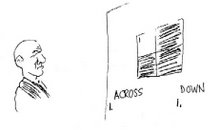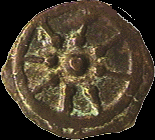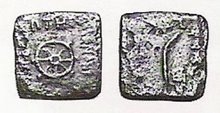Monday, April 17, 2017
President Flip-Flop
The simplest explanation for Donald Trump’s position reversals (FLIP-FLOPS) on everything from Syria to interest rates?
Ignorance.
In February 2017, Jon Stewart noted that Donald Trump had a remarkable affinity for a certain phrase: “Believe me.”* Trump used it over and over, which made Stewart wary: “Nobody says ‘believe me’ unless they are lying.”
In recent days, the president has flip-flopped on a wide range of issues, from fiscal policy to foreign wars and taxes to trade. Here’s a quick rundown.
Chinese Currency Manipulation
During the campaign, Trump railed against China’s economic policy, saying Beijing was keeping its currency artificially low as a way of getting a leg up on the U.S.
In an interview with The Wall Street Journal published on Wednesday, Trump announced he’d flip-flopped: “They’re not currency manipulators.”
Janet Yellen and Low Interest Rates
Federal Reserve Chair Janet Yellen was another punching bag for Trump during the campaign. “Janet Yellen should have raised [interest] rates,” he said in November 2015.
“She’s not doing it because the Obama... doesn’t want her to.” In May 2016, he promised to replace her because she was not a Republican. By September 2016, he’d changed his mind again, saying she should be “ashamed” for keeping rates low.
In his new Journal interview, Trump opened the possibility of reappointing Yellen at the end of her term in 2018, saying she was “not toast.” “I like her, I respect her,” the president said, adding, “I do like a low-interest rate policy, I must be honest with you.”
Syria
Trump’s most visible reversal has come on his policy toward Syria. As a private citizen and as a candidate, Trump repeatedly argued against American military intervention against the Assad regime. Yet last week, Trump decided to launch missile strikes against the Assad government.
The White House’s explanations for all the flip-flop have been confusing. Administration officials have said, for example, that use of chemical-weapons against innocent civilians is unacceptable. But that was going on in 2013 when Trump was stridently opposed to U.S. intervention.
Russia
Along with Trump’s reversal on Syria has come a reversal on Russia. Throughout the campaign, Trump praised Russian President Vladimir Putin, downplayed the Russian leader’s misdeeds, and argued that America had much to gain from working with the Kremlin.
Now, the White House’s rhetoric toward Putin has turned decidedly chilly. On Tuesday, the administration made the case that Russia had attempted to help Assad cover up the chemical-weapons attack. Russia said that relations with the U.S. are at their lowest ebb since the Cold War, a claim that Secretary of State Rex Tillerson basically confirmed.
NATO
Trump frequently criticized NATO during the campaign, arguing the alliance had outlived its usefulness.
At a White House press conference with NATO Secretary-General Jens Stoltenberg on Wednesday, Trump said the NATO alliance was a “bulwark of international peace.” The president added, “I said it was obsolete. It's no longer obsolete.” Trump attributed the change of heart to what he said was a renewed focus on terrorism. NATO officials have said the change was long planned. Trump’s change of heart here resembles his team’s shift on Bureau of Labor Statistics unemployment numbers it previously criticized. “They may have been phony in the past, but it’s very real now,” spokesman Sean Spicer said in March.
James Comey
When Trump entered office, he decided to keep FBI Director James Comey in place, to the chagrin of some Democrats, who were upset at the director’s public comments on the FBI investigation into Hillary Clinton, which they blamed for costing her the election.
In March, however, Comey confirmed that the FBI was investigating Russian interference in the election, and whether Trump aides colluded with Russia. He also refuted the president’s claim that he was surveilled before the election. That annoyed Trump. In an interview with Fox Business’s Maria Bartiromo that aired Wednesday, Trump said he had confidence in Comey but also said it was not too late for him to fire the director.
Export-Import Bank
During the campaign, Trump stood with many Republicans in opposing the Export-Import Bank, a government agency that encourages purchases of U.S. goods. “I don't like it because I don’t think it's necessary,” he told Bloomberg. “It’s a one-way street also. It’s sort of a featherbedding for politicians and others, and a few companies.... And when you think about free enterprise it’s really not free enterprise. I’d be against it.”
Since entering the White House, Trump has had a change of heart. The president privately reversed his stance on the Ex-Im bank, and he confirmed it to the Journal, saying he intended to fill two empty seats on the board. “Instinctively, you would say, ‘Isn’t that a ridiculous thing,’” he said. “But actually, it’s a very good thing. And it actually makes money, it could make a lot of money.”
It is too early to say what sort of political price Trump might pay for his flip-flopping.
A more useful question at the moment is what is driving Trump’s sudden spree of reversals.
There is a correlation between Trump’s recently abandoned stands and Bannon’s views. Bannon has lionized Vladimir Putin, disdained NATO, and argued strenuously against military action in Syria. He has portrayed the Ex-Im Bank as a form of corporate welfare.
In most cases, Trump’s changed views appear to be more of a reflection of the president’s ignorance. The president was widely mocked for his claim that “nobody knew that healthcare could be so complicated.” It is true that many people recognized that, but equally apparent that Trump did not. As is becoming clear, he was a blank slate on a range of other issues as well.
Trump told the Journal he had told President Xi Jinping that China could easily solve the North Korea problem. “After listening for 10 minutes, I realized it’s not so easy,” Trump said. “I felt pretty strongly that they had a tremendous power… but it’s not what you would think.”
It’s a striking admission that just 10 minutes of lecturing from a foreign leader could reverse Trump’s view of a major challenge facing his administration. And yet that is in line with his other reversals.
The learning curve for the president is steep, and as he tries to climb it, the nation may be treated to many more dizzying reversals.
https://www.theatlantic.com/politics/archive/2017/04/the-flip-flop-president/522840/
“Lying is second nature to him,” Schwartz said. “More than anyone else I have ever met, Trump has the ability to convince himself that whatever he is saying at any given moment is true, or sort of true, or at least ought to be true.”
source
Subscribe to:
Post Comments (Atom)











No comments:
Post a Comment